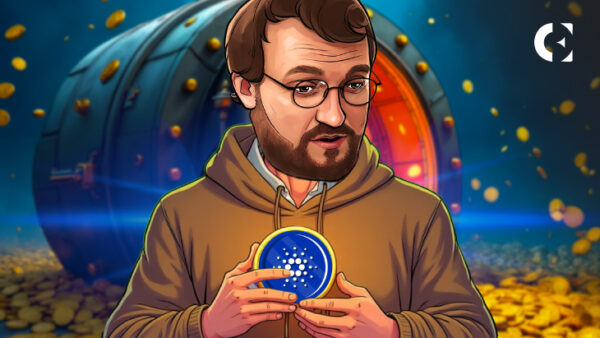- Malformed transaction triggered a temporary Cardano mainnet partition and dual chains.
- SPOs updating to version 10.5.3 are restoring the unaffected chain as the valid network.
- The individual admitted to causing the issue while testing, denying any financial intent.
Cardano’s mainnet experienced an unusual period of disruption after a malformed delegation transaction caused a temporary blockchain partition, resulting in slowed block production and UI inconsistencies across several services.
The incident emerged shortly after developers identified a similar issue on the testnet, prompting emergency engineering intervention and an accelerated rollout of a software fix to stake pool operators (SPOs). Although the event caused operational confusion, the blockchain remained functional throughout the episode, with both sides of the fork continuing to generate blocks until reconciliation could occur.
Bug in New Node Versions Causes Parallel Chains
According to updates shared publicly, newer versions of the cardano-node software introduced a bug that produced a fork when executed under specific conditions. Older node versions continued to operate without interruption, which allowed the base chain to remain active even as the newer versions diverged. The outcome created two competing chains, slowing block production and generating temporary issues for front-end explorers and wallet interfaces.
Developers confirmed that a malformed delegation transaction, constructed using a cryptographic library bug dating back to 2022, was responsible for triggering the partition. The hotfix prepared overnight was pushed to SPOs before any additional activity could affect the mainnet. Stake pool operators were instructed to update to version 10.5.3, enabling the unaffected chain to overtake the forked chain.
Hoskinson Says Transaction Was Directed at His Pool
Charles Hoskinson stated that the malformed transaction executed on mainnet appeared to target his own stake pool, noting that the action created a network partition around 8 to 9 a.m. local time in London.
He said blocks continued to be produced on both chains and that once SPO upgrades were completed, the “poisoned” chain’s blocks would be orphaned. Transactions on that chain may require a later reconciliation step depending on replay feasibility. Hoskinson also noted that the individual behind the action had been active in an online community and that authorities had been alerted.
Individual Claims Responsibility and Issues Public Apology
Following the updates from Hoskinson, an individual identifying as “Homer J (AAA)” posted an extended apology, stating he unintentionally caused the event while attempting to reproduce the flawed transaction.
He said that the action stemmed from incorrect instructions executed on a Linux server and denied any financial motive or collaboration. He added that he did not sell or short ADA before the event and acknowledged the consequences of his actions for the network and community.
Related: Hoskinson Declares ADA Staking Non-Security Following SEC Liquid Staking Guidance
Disclaimer: The information presented in this article is for informational and educational purposes only. The article does not constitute financial advice or advice of any kind. Coin Edition is not responsible for any losses incurred as a result of the utilization of content, products, or services mentioned. Readers are advised to exercise caution before taking any action related to the company.







